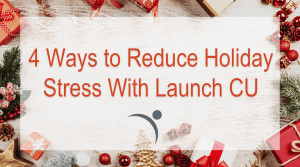5 Boat Buying Tips For A First Time Buyer
Cruising the open seas on a warm sunny day is a great way to spend your afternoon, but let’s not get ahead of ourselves. Whether you’re a first-time boat buyer or looking to buy your second or third, you will want to make sure the proper research is done. Often times, the processing of buying a boat is so exciting that we make simple mistakes. With such a big investment, we want to make sure this doesn’t happen to you. Below are tips to help you avoid a major boat-buying mistake.

Top Boat Purchasing Tips
1. Purchase The Right Boat
There are several different types of boats to choose from, so you shouldn’t have a problem finding one that meets your needs. Conversely, with so many choices, you can end up purchasing a boat that might not be exactly what you wanted. To help navigate you in the right direction, you will want to decide what body of water you will be spending most of your time on. For instance, will you be spending your time on the ocean, lake, or river? This will heavily influence the type of boat you should buy. Below are some things to consider in regards to bodies of water.
Rivers
Rivers tend to be shallower. Thus, you will want to steer clear of motors that can’t be lifted out of the water. Motors that can be lifted out of the water are fine to use. Stick to boats that have flat bottoms. Other considerations include bass boats or bay boats. These work perfectly at navigating the shallow waters.
Lakes
Boats become a bit easier to choose from when using them for lakes. You can choose from a houseboat for leisure or fishing boats. If you’re looking for a boat that offers a bit of everything from fishing, high-speed thrills, and water sports such as waterskiing, then you will want to stick to a performance boat, jet boat, or even a deck boat. Purchasing these types of boats will give you endless possibilities!
Ocean
Ocean boating is a completely different prospect. Due to the harsher conditions, your boat may experience, we recommend purchasing a larger boat for the ocean. If you experience large waves, or you get caught out in a storm, it’s safest in a bigger boat. You will also have to consider fuel capacity, especially if you’re looking for longer trips. Large cruisers are a wise choice for ocean waters. We advise installing a communication device on your boat, since cell phones are less reliable the further out from land you travel. This will ensure you still have communication capabilities on your long trips.
2. Dimensions Of Your Boat
Knowing what you plan on using your boat for is essential for deciding how big or small of a boat you will want. If you plan on using your boat for leisure or fishing with friends and family, you will want a boat that has adequate space for your equipment and lounging. Conversely, if you plan on going out on the water by yourself or with one other person, then a smaller boat would adequately meet your needs.
3. Buying New Or Used
Once you have decided on the size and type of boat you desire, you will want to decide if you’re going to buy new or used. This decision comes with pros and cons that you will want to pay close attention to. Depreciation affects boats just like any other vehicle. Therefore, you will want to take this into consideration when you’re buying a new boat. As soon as you purchase your boat and drive it off the lot, it depreciates in value. However, purchasing a new boat does come with an upside. New boats come with a warranty which might give you the peace of mind you’re looking for. Buying used can be a much cheaper alternative. It does pose some risks you will want to be aware of when you’re doing your inspection. Below is a list of issues you will want to check for upon your inspection.
- The engine is probably the most important part to check to ensure it is in great shape. Otherwise, you could be looking at investing in a money pit. Listen to the engine and make sure there aren’t any hiccups. Make sure to check the liquid elements, such as the oil. If the liquid is milky white colored, this indicates water is getting in. Thus, you have a leak somewhere or a blown seal. If you’re not familiar with mechanics on a boat, it might be best to bring a friend who does or even better, a mechanic. Hiring a qualified mechanic to inspect a boat prior to purchase is money well spent.
- Inspect the belts. A responsible boat owner maintains a boat’s belts. However, if simple maintenance problems haven’t been taken care of, it can cause major issues in the future.
- Check for cracks and flexing in the fiberglass and wooden areas. Common areas to check are the hull, handles, and windshield. If the area has significant damage where moisture could have set in, the boat could have started to rot. Cracks larger than 2 to 3 inches may suggest an underlying problem. This should throw up a red warning flag.
- Inspect the seating areas. If the seats are loose or wobbly, you will want to check if it is just loose bolts, or if rot has set into the floor. If it’s just the bolts, that’s an easy fix. Typically, this is just a sign that the bolts have been stripped due to normal wear and tear.
- Do a close inspection for mildew. Common areas to check are the upholstery, seats, and carpet. Mold can spread quite easily so make sure you examine every inch. Rot can also impact boats that have mold and mildew issues. Rot isn’t quite as common now that the majority of builders have stopped using untreated wood, which was the leading cause of this issue. However, if you’re looking at older boats, this will be an issue you will want to check for.
- Make sure you’re testing all electrical systems. Rewiring a boat can be a very difficult job. Closely inspect each electronic, turning on each light and electrical device one at a time. Inspecting wiring areas for rats’ nests can be a smart idea as well. Pay attention to the fuse box and check to make sure everything is in order. If you see a mismatched item that looks like they were replaced, ask why. This could be a sign of more underlying issues.
- There are several parts on a boat you will want to inspect, such as worn or broken stringers, cabin leaks, hull joint separation, leaking, and a multitude of other areas. It’s best to have a mechanic or a serious boater with you when buying used. This will increase your odds of finding any issues before you make a big investment.
4. Sea Trial
Before you purchase a boat, you will want to take the boat out on a sea trial. This is different from a joy ride. With a sea trial, you will want to check the boat’s maneuverability and speed. Pay close attention to the sound of the boat and other devices and systems that can only be tested in the water. Make sure there are no extreme vibrations or rattling within the boat, which may lead to more underlying issues. If you’re purchasing a casual boat then you may just want a simple boat ride for your testing purposes. If you’re inspecting a docked boat, request to have the boat taken out of the water. There can be several issues besides what you can see while the boat is on the water.
5. Financing
Most people need financing to help them purchase a boat. Picking the right financial partner is a critical step in your buying journey. At Launch CU, we finance fun! We can help you finance your next adventure on the open seas today! We offer excellent boat loan rates, flexible loan terms up to 240 months, and monthly payments you can afford. Apply online for your boat loan, or call a friendly Launch CU Loan Specialist at 321-456-5441.


